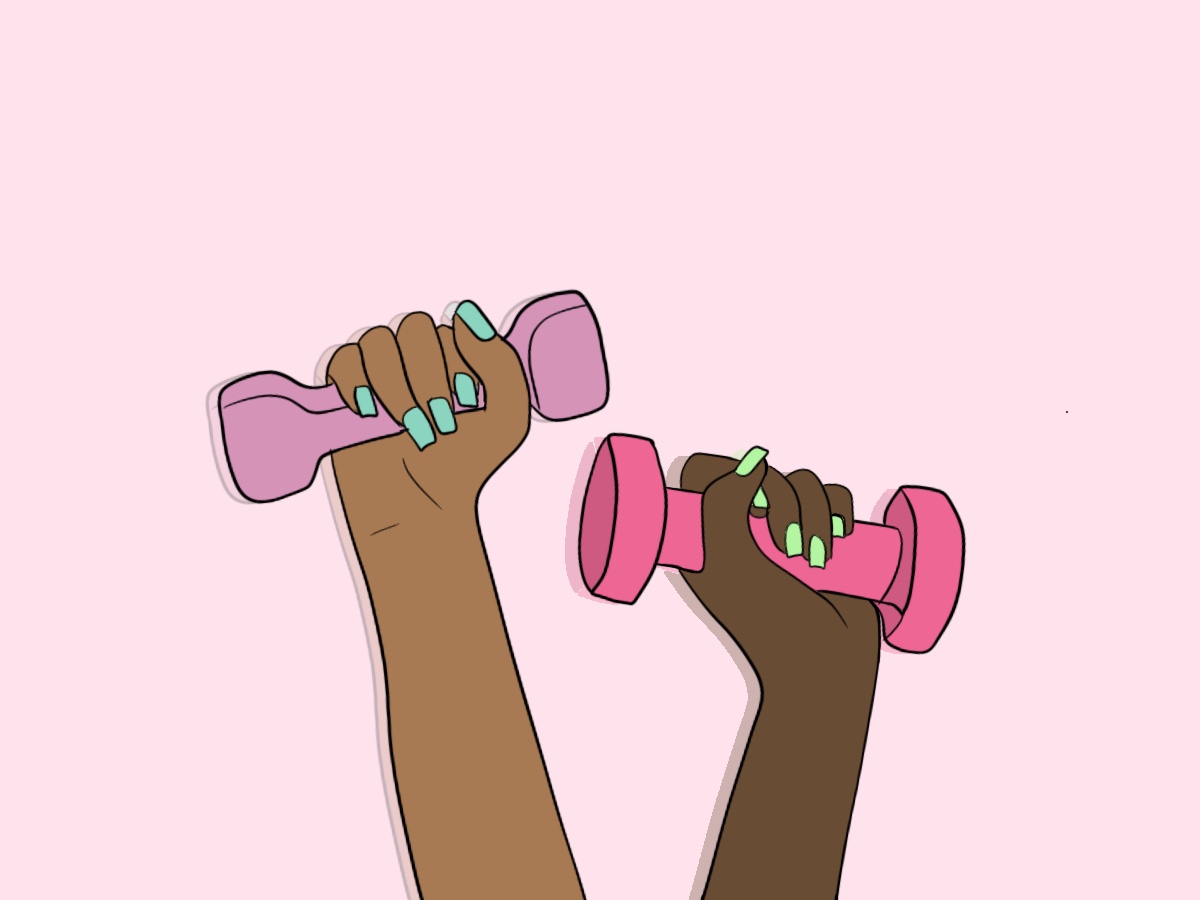Whether you want to shed some pounds, tone up for swimsuit season, or be able to walk up flights of stairs without breaking a sweat, getting fit is always a worthwhile goal. Historically, though, an implicit bias in healthcare that disproportionately affects Black women can make it difficult to feel heard. When health professionals don’t take your concerns seriously, minor issues can morph into complex conditions. And with 72% of Black adults in the UK being overweight or living with obesity – it’s all the more important to make sure you have a solid support system.
Women of colour, in particular, face perceived barriers to fitness, like lack of time or safety concerns. Moreover, as physical activities often have a social component, women who are overweight or obese may shy away from fitness programmes due to a (valid) fear of exclusion or embarrassment. For first-timers, the idea of being perceived and judged can be overwhelming – it’s no surprise, then, that 88% of people living with obesity in the UK have reported being stigmatised due to their weight. The great news is a support group may be able to help. Just as you feel relieved when you make a new friend at a party where you don’t know anyone, leaning on a community could make you more likely to achieve your fitness goals with confidence.
Overcoming barriers together
It’s easy to skip a Pilates class when you don’t have friends who’ll blow up your phone asking where you are. Having companions where you work out imparts a sense of accountability, which pushes you to stay consistent on your fitness journey. You can feed off of their energy when you need a motivation boost, and in turn, you can encourage them, too.
The more, the merrier

Would you rather endure an intense kickboxing class alone or with a friend or two? Though getting used to a workout routine will always be challenging at first, it doesn’t hurt to introduce a little fun and socialisation to the mix by getting to know the people you’re sweating it out with. Nothing’s better than looking at the people beside you and going, “still with me? We got this!”
This is why weight loss programmes emphasise the importance of finding a community. Rather than going through dieting or exercising alone, it helps to feel supported by other people who empathise with what you’re going through and can support you. A good programme will offer an exclusive social network for the members to share tips, recipes, and solutions for everyday challenges, allowing you to feel connected, even when you’re at home
One study supports this idea, noting that all 250 participants cited a ‘sense of community’ as an essential factor in having a positive experience with exercise. It was found that increased social support resulted in more physical activity among participants and increased adherence to exercise prescription programmes.
Group-based activity doesn’t just come with physical benefits – it can be helpful for your mental health, too. In a study of UK adults with depression, those who joined just one exercise group managed to reduce their risk of depression relapse four years later by 24%. Those who joined three groups reduced their risk by 63%.
Tips for staying fit as a group
It’s not just about how you start but how you finish. 95% of people who started a weight loss programme with friends could complete it, compared to 76% of people who signed up alone. But let’s face it; life can make it challenging to sync schedules and keep the momentum going.
Have a realistic discussion with your friends about the workouts you can do consistently. Maybe some would rather walk ten thousand steps a day than train for that half-marathon, which is still a great idea, especially if your work keeps you tied to your desk daily. You’ll also want to find common free time. After your workout sessions, arrange for healthy lunches or smoothie runs, or shop for matching gear so you can all head into the gym in style.
If you want to get and stay fit and have struggled on your own, being part of a community is the best way to meet your goals.
Find more self-improvement articles here >
Written by Sofia Collier

